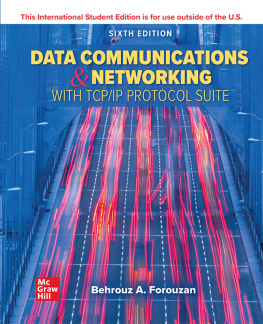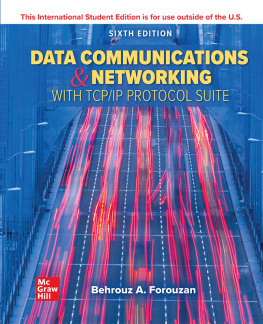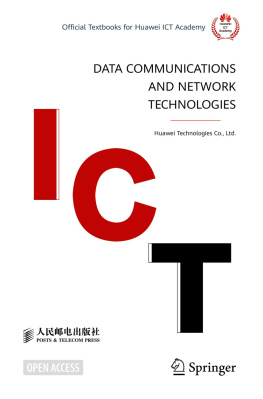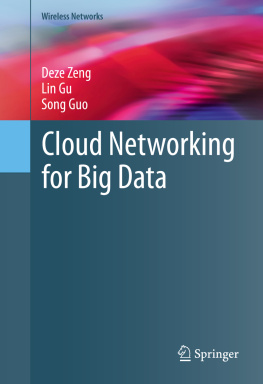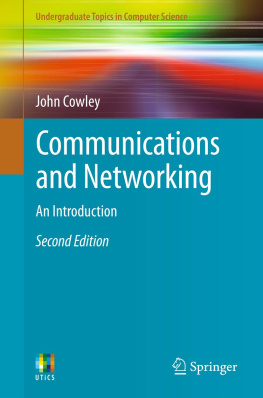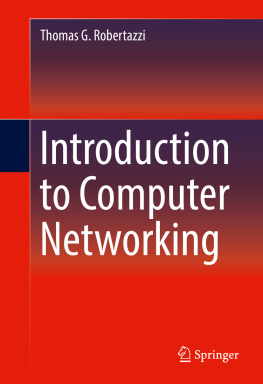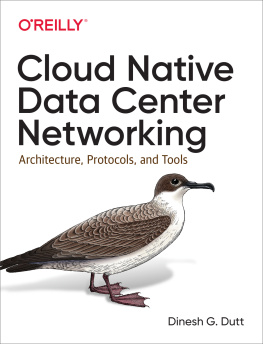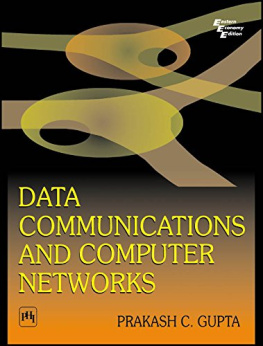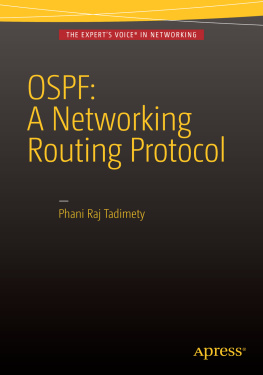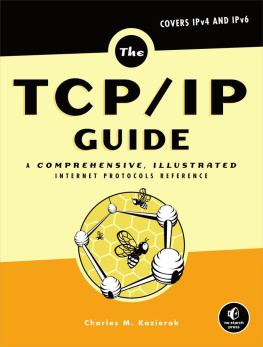Behrouz A. Forouzan - Data communications & networking with TCP/IP protocol suite
Here you can read online Behrouz A. Forouzan - Data communications & networking with TCP/IP protocol suite full text of the book (entire story) in english for free. Download pdf and epub, get meaning, cover and reviews about this ebook. year: 2021, publisher: McGraw-Hill US Higher Ed ISE, genre: Home and family. Description of the work, (preface) as well as reviews are available. Best literature library LitArk.com created for fans of good reading and offers a wide selection of genres:
Romance novel
Science fiction
Adventure
Detective
Science
History
Home and family
Prose
Art
Politics
Computer
Non-fiction
Religion
Business
Children
Humor
Choose a favorite category and find really read worthwhile books. Enjoy immersion in the world of imagination, feel the emotions of the characters or learn something new for yourself, make an fascinating discovery.
- Book:Data communications & networking with TCP/IP protocol suite
- Author:
- Publisher:McGraw-Hill US Higher Ed ISE
- Genre:
- Year:2021
- Rating:5 / 5
- Favourites:Add to favourites
- Your mark:
- 100
- 1
- 2
- 3
- 4
- 5
Data communications & networking with TCP/IP protocol suite: summary, description and annotation
We offer to read an annotation, description, summary or preface (depends on what the author of the book "Data communications & networking with TCP/IP protocol suite" wrote himself). If you haven't found the necessary information about the book — write in the comments, we will try to find it.
Data communications & networking with TCP/IP protocol suite — read online for free the complete book (whole text) full work
Below is the text of the book, divided by pages. System saving the place of the last page read, allows you to conveniently read the book "Data communications & networking with TCP/IP protocol suite" online for free, without having to search again every time where you left off. Put a bookmark, and you can go to the page where you finished reading at any time.
Font size:
Interval:
Bookmark:

Page i
Data Communications
and Networking
with TCP/IP Protocol Suite
Page ii
Page iii
Data Communications
and Networking
with TCP/IP Protocol Suite
Sixth Edition
Behrouz A. Forouzan

Page iv

DATA COMMUNICATIONS AND NETWORKING WITH TCP/IP PROTOCOL SUITE
Published by McGraw Hill LLC, 1325 Avenue of the Americas, New York, NY 10121. Copyright 2022 by McGraw Hill LLC. All rights reserved. Printed in the United States of America. No part of this publication may be reproduced or distributed in any form or by any means, or stored in a database or retrieval system, without the prior written consent of McGraw Hill LLC, including, but not limited to, in any network or other electronic storage or transmission, or broadcast for distance learning.
Some ancillaries, including electronic and print components, may not be available to customers outside the United States.
This book is printed on acid-free paper.
1 2 3 4 5 6 7 8 9 LCR 26 25 24 23 22 21
ISBN 978-1-26-436335-3
MHID 1-260-59782-2
Cover Image: Ingram Publishing/SuperStock
All credits appearing on page or at the end of the book are considered to be an extension of the copyright page.
The Internet addresses listed in the text were accurate at the time of publication. The inclusion of a website does not indicate an endorsement by the authors or McGraw Hill LLC, and McGraw Hill LLC does not guarantee the accuracy of the information presented at these sites.
mheducation.com/highered
Page v
To my beloved daughter.
Page vi
Page vii
BRIEF CONTENTS

Page viii
Page ix
CONTENTS
Page x
Page xi
Page xii
Page xiii
Page xiv
Page xv
Page xvi
Page xvii
Page xviii
Page xix
PREFACE
W elcome to the sixth edition of Data Communications and Networking with TCP/IP Protocol Suite . We are living in an information age, and information is distributed faster that ever using the Internet, which works based on the topics discussed in this book.
Features
Although the main goal of this book is to teach the principles of networking, it is designed to teach these principles using the following features:
TCP/IP Protocol Suite
This book is designed to teach the principles of networking by using the TCP/IP protocol suite. Teaching these principles using protocol layering is beneficial because these principles are repeated and better understood in relation to each layer. For example, addressing is an issue that is applied to several layers of the TCP/IP protocol suite. Another example is framing and packetizing , which is repeated in several layers, but each layer treats the principle differently.
Bottom-Up Approach
This book uses a bottom-up approach. Each layer in the TCP/IP protocol suite is built on the services provided by the layer below. We learn how bits are moving at the physical layer (first layer) before learning how some programs exchange messages at the application layer (fifth layer).
Organization
The book is made up of 13 chapters, six appendices, a list of references, and a glossary.
This chapter is an introduction to Data Communications and Networking with TCP/IP Protocol Suite . It defines the concept of protocol layering and gives a brief description of the TCP/IP protocol suite and the OSI model.
This chapter describes the first layer of the TCP/IP protocol suite: the physical layer. It explains the relationship between data and signals and describes both analog and digital signals. It also discusses multiplexing to benefit from the available bandwidth. Finally, it goes below the physical layer and discusses the transmission media.
Page xx
This chapter discusses the data-link layer, the second layer in the TCP/IP protocol suite. It shows that the data-link layer is made up of two sublayers: medial link control and data link control. It also discusses link-layer addressing.
This chapter discusses the local area networks (LANs) that use only the first two layers of the TCP/IP protocol suite. It describes both wired LANs (Ethernet) and wireless LANs (WiFi and Bluetooth).
This chapter discusses the wide area networks (WANs) that also use only the first two layers of the TCP/IP protocol suite. It describes several WANs, including the telephone network, cable network, cellular telephony, and satellite networks.
This chapter discusses the connecting devices such as hubs, link-layer switches, and routers. It also describes virtual LANs.
This chapter discuses the first duty of the network layer: data transfer. It explains the service in this duty such as packetizing, routing, error control, flow control, congestion control, and quality of services. It then describes the concept of packet switching. It also describe network-layer performance. The main goal is to introduce the two versions of the network layer in the Internet: IPv4 and IPv6.
This chapter discusses the second duty of the network layer: routing of packets. It discusses unicast routing protocols such as distance vector routing, link-state routing, and path-vector routing. It also discuss multicast routing and protocols.
This chapter discusses the transport layer. It first describes the services expected from a transfer-layer protocol. It then describes a simple transport layer protocol UDP. Finally, it describes a more sophisticated protocol TCP. Finally, it describes SCTP, a transport-layer protocol that uses association.
This chapter discusses the application layer, the highest level in the TCP/IP protocol suite. It shows how this layer uses client/server programs. It then introduces some applications such as the Web, file transfer, and e-mail. Finally, the chapter discusses some peer-to-peer applications. It finally shows how application programs can be created using the C-language.
Page xxi
This chapter discusses multimedia. It shows how compression is used in multimedia. It then defines the elements of multimedia such as text, image, video, and audio. It then describes how multimedia is used in the Internet.
This chapter introduces network management and discusses five general areas used in network management. It also defines the Simple Network Management Protocol (SNMP) that is used in the Internet, which is based on Simple Management Information (SMI).
This chapter briefly discusses the concept of security goals including confidentiality, integrity, and availability. It then describes how these goals can be achieved using message integrity, message authentication, digital signature, and entity authentication. The chapter then describes how these goals can be achieved using security in the transport layer and application layer.
This appendix discusses Unicode, the coding system used in communication.
This appendix discusses the positional numbering system and how the system uses numbers in different bases.
This appendix discusses mark-up languages such as HTML, CSS, XML, and XSL, which are used in data communications and networking.
This appendix gives a touch of probability that can be useful in understanding some networking protocols.
This appendix discusses checksum.
Font size:
Interval:
Bookmark:
Similar books «Data communications & networking with TCP/IP protocol suite»
Look at similar books to Data communications & networking with TCP/IP protocol suite. We have selected literature similar in name and meaning in the hope of providing readers with more options to find new, interesting, not yet read works.
Discussion, reviews of the book Data communications & networking with TCP/IP protocol suite and just readers' own opinions. Leave your comments, write what you think about the work, its meaning or the main characters. Specify what exactly you liked and what you didn't like, and why you think so.

